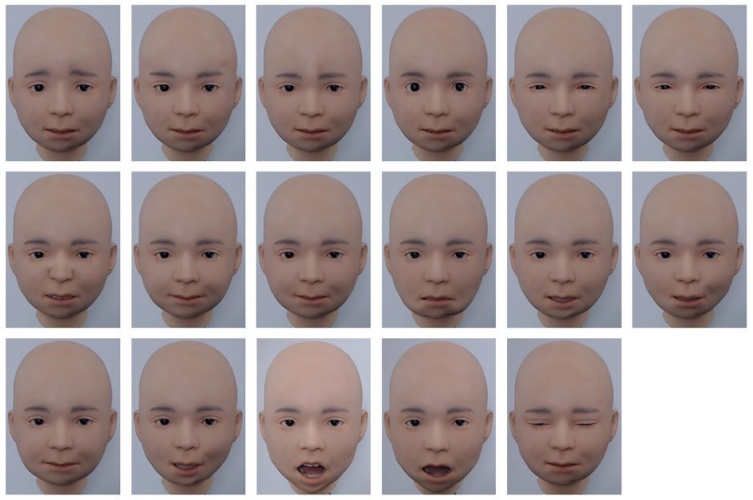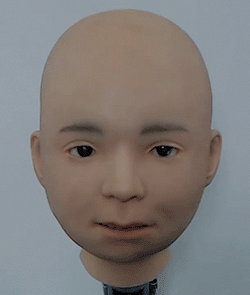
The new study led by Wataru Sato, published in Frontiers in Psychology, tested how well people could identify six facial expressions - happiness, sadness, fear, anger, surprise, and disgust - which were generated by moving artificial muscles in Nikola’s face. According to RIKEN, this is the first time that the quality of android-expressed emotion has been tested and verified for these six emotions.
Inside Nikola’s face are 29 pneumatic actuators that control the movements of artificial muscles. Another six actuators control head and eyeball movements. The pneumatic actuators are controlled by air pressure, which makes the movements silent and smooth.
The team arranged the actuators based on the Facial Action Coding System (FACS), which has been used extensively to study facial expressions. Past research has identified numerous facial actions - such as ‘cheek raiser’ and ‘lip pucker’ - that comprise typical emotions such as happiness or disgust, and the researchers incorporated these action units in Nikola’s design.
According to RIKEN, studies of emotions, particularly how people react to emotions, have been problematic. It is difficult to do a properly controlled experiment with live people interacting, but looking at photos or videos of people is less natural and reactions are not the same.
“The hope is that with androids like Nikola, we can have our cake and eat it too,” Sato said in a statement. “We can control every aspect of Nikola’s behaviour, and at the same time study live interactions.”

A person certified in FACS scoring was able to identify each facial action unit, indicating that Nikola’s facial movements accurately resemble those of a real human. A second test showed that members of the public recognise the six prototypical emotions in Nikola’s face with varying degrees of accuracy. RIKEN said this is because Nikola’s silicone skin is less elastic than real human skin and cannot form wrinkles very well. This makes emotions like disgust harder to identify because the action unit for nose wrinkling could not be included.
“In the short term, androids like Nikola can be important research tools for social psychology or even social neuroscience,” said Sato. “Compared with human confederates, androids are good at controlling behaviours and can facilitate rigorous empirical investigation of human social interactions.”
The ultimate goal of the Guardian Robot Project is to build an android that can assist people, particularly those which physical needs who might live alone. “Androids that can emotionally communicate with us will be useful in a wide range of real-life situations, such as caring for older people, and can promote human wellbeing,” said Sato.




Poll: Should the UK’s railways be renationalised?
I think that a network inclusive of the vehicles on it would make sense. However it remains to be seen if there is any plan for it to be for the...